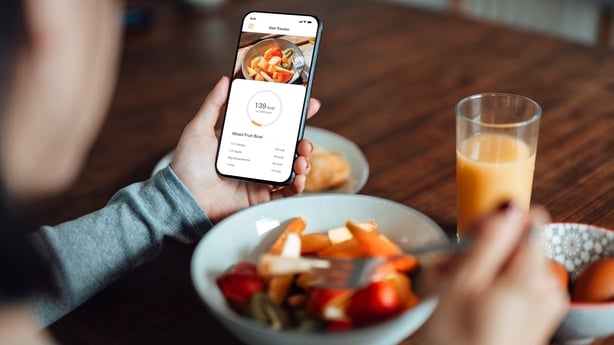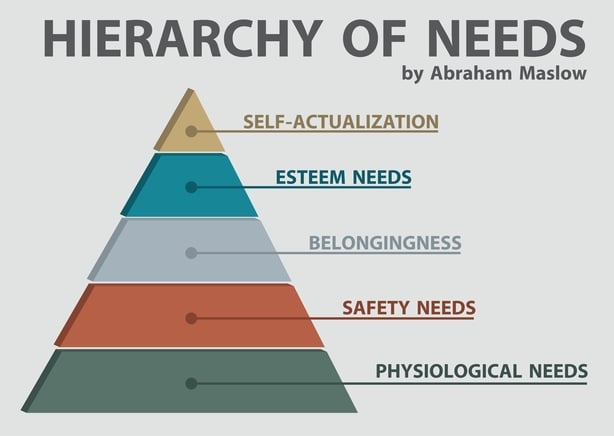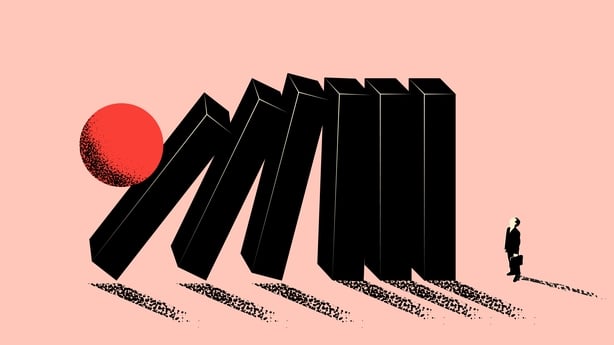As excess reigns and hyper-consumerism irks, denying oneself becomes the new power play of 2024. And with the endless quest to consume less, are we really proving more? Kate Demolder writes.
If you're trying to blend in among the fashionable and super wealthy, expressing a taste for the finer things in life should seem like a plausible way to do it. But, as current trends have shown, it’s not quite as easy as that.
The middle-class ideal of the past decade, borne of the alliance between apps like Instagram and the celebrities who use it, has become that of complete self-deprivation––and, ultimately, a hiding of all need.
This obsession with self-denial - of information, entertainment, nourishment - follows a wave of hyper-consumption, which deems personal austerity to be back in vogue.
Minimalism, no-makeup makeup, protein bars, liquid meals, a capsule wardrobe, Ozempic, van-life, liposuction overtaking breast augmentation as the most popular cosmetic surgery for the first time, the rise in Gen Z Catholicism, sober-curiosity, elective celibacy, impractically tiny bags, 'raw dogging' flights, the belief that thinness equates to health, and simple flip phones - the kind without internet (which have risen in searches by 15,369% over the past year) - have all sparked a similar conversation: is less actually more? Or, does denying more… give you something else?
The past decade has brought with it a number of psychological pivots. The first, a time of non-stop technological innovation, self-help, and a drive for personal optimisation.
For guidance in these realms, we turn to gurus who are no longer peddling snake oil, but metrics, almost as if they’re saying, "it’s no longer enough to simply imagine oneself in a better life, one must chart the progress it takes to prove it."
As such, we count our steps, track our sleep rhythms, eliminate whole food groups and write down our negative thoughts–only to analyse the data, recalibrate, and repeat in hope of better results. This insists on a new kind of personal enlightenment, one that can be chipped away at by maximal control–upgrading each part of ourselves in the traditional consumerist format that deems us unhappy unless we buy every type of jeans, not just one.
(This might explain Yoni eggs, stone vaginal inserts that purport to strengthen women’s pelvic-floor muscles and take away "negative energy,"; Gwyneth Paltrow’s Web site, Goop, offers them in both jade and rose quartz.)

Following Covid-19––a worldwide ordeal that many claimed would be the great equaliser - of course, it was those with fewer means who suffered the most. The rich and well-connected got better care, quicker vaccines, and had the space in their homes to relax and recuperate.
As a result, I believe, health–the kind that can be measured in facts and figures–is now seen as this beacon of status. Which is why supercharging one’s food habits is everywhere; TikTok videos fetishise protein over taste, while drinks like Huel, which claims to be a 'nutritionally complete food,’ tick the box of food without having to actually eat it.
In a section of the world where food is plentiful, accessible and affordable, the abstinence of it proves a higher set of needs, one that points towards self-actualisation. Denial is a strong coping mechanism, lest we forget.

Self-actualisation, of course, is a luxury good that those with the time and means strive for; of those who climb Everest, it is the wealthy whose names are recorded on lists, not the sherpas who guide them.
It sits atop Maslow’s hierarchy of needs, above physiological (food and clothing), safety (job security), love and belonging needs (friendship) and has been the focus of the overbearing wellness industry for some time now.
Some claim this to be a symptom of our desire to abstain, and while there are indeed tenuous links, the real reasoning is based in economics. Celebrities, those linked with excess and abundance, are thinning before our eyes, and rumoured to be hosting injection parties for diet drugs amidst pharmacological shortages.
The abhorrent term of 'heroin-chic' has thus returned in a new form, with the same pace that plus-size models––the kind that were revered as "the new supers," just last year––are being removed from catwalks.

Succession, an HBO television show about the bountiful resources and anesthetised habits of gilded captivity, tapped into this link long before anyone realised.
From Logan’s humiliating game of "Boar on the Floor" to the box of doughnuts he sends his children when they try to meet in secret, the implication of food on Succession has always been loaded–to the point where, if a character does choose to eat, it tends to diminish their power entirely.
In the same way, the insinuation of need repulses. When Bridget, Cousin Greg’s unexpected date, attends Logan Roy’s birthday party, she betrays the rules of the hegemony that granted her entrance. "Because she’s brought a ludicrously capacious bag," Tom Wambsgans explains. "What’s even in there, huh? Flat shoes for the subway? Her lunch pail? I mean, Greg, it’s monstrous. It’s gargantuan. You could take it camping. You could slide it across the floor after a bank job."
A large bag–big enough for a secondary, comfortable pair of shoes or indeed, lunch–denies access into the world of the wealthy, as supply implies need. (The bag, in question, is Burberry. And costs nearly €2,000.)

The seductive relief of need hones in on a sort of powerlessness–buoyed by war, moral panic and climate change uncertainty–that is seemingly quelled by requiring less. That said, where our personal successes can be measured with increasing accuracy, so, too, can our failures.
When 30-year-old Jordan Neely, a Black homeless man based in New York, boarded a subway train in May of last year, he reportedly began screaming: "I don't have food, I don't have a drink, I'm fed up. I don't mind going to jail and getting life in prison. I'm ready to die."
It was then that 24-year-old Daniel Penny, a white former Marine, allegedly began choking him for an undisclosed time (the exact length is heavily disputed, but it’s believed to be between five and fifteen minutes).
Passengers on the train warned Penny that Neely had defecated on himself, a sign that he may be dying. "You don't want to catch a murder charge," one said. "You got a hell of a chokehold, man." Others looked away, choosing instead to sit in the presence of a man dying than one with open need. (Penny pleaded not guilty; he stands trial in October.)
Many paradoxes exist within this space of reactionary self-restraint. But, perhaps the biggest one is that it calls for an individual solution to a collective problem. There’s good reason to fear being left behind by an accelerating society, especially a society, like ours, that is not kind to those who don’t, or can’t, keep up. But consistent denial penalises the sinner, not the religion. And, if anything, it leads us to a maudlin nostalgia for days when collective empathy did not exist.

Some may argue that conservatism has its place, but the belief that denying oneself is the only true progressive approach in a system that feels increasingly unbearable is never going to work.
In fact, it simply retraces the many steps we’ve made in recent decades; that asking for help isn’t a sign of weakness, or that personal losses shouldn’t be caked in shame.
This is what Neely attempted to do; seek help while in desperate need. Yet, around him, people made idle chitchat, looked at their phones and remained preoccupied with whatever they did or didn’t need that day. While he died screaming, for needs that we all have, but are too afraid to shout about.
If this new era of personal austerity can teach us anything, it’s that these trends are cyclical, and thus no different to the bland headlines of the late 1990s: Slimfast, pop art, Special K diets, logoless luxury, Atkins, cellphones, cocaine and, of course, liposuction.
The points being made today–that we should be consuming less–are neither capitalist-critical, spiritual nor truly socioeconomic. They’re simply another style, one as superficial as any other runway trend, just with an added layer of superiority baked in.
At the end of the day, I believe that it’s important to understand that this kind of self-denial is just another product that people are willing to buy. The kind they’re trying to convince themselves they don’t need in the first place.
The views expressed here are those of the author and do not represent or reflect the views of RTÉ


